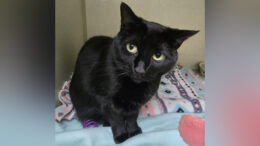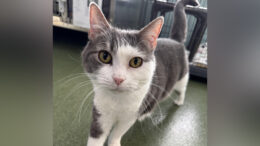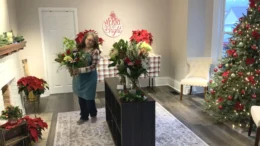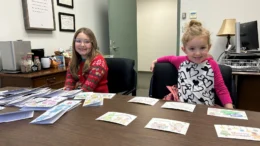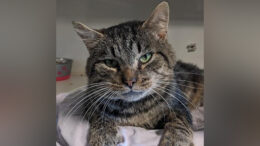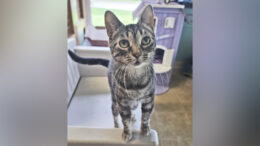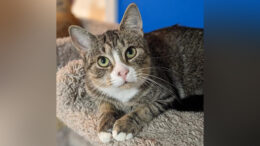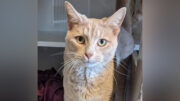By BROOKE WHITLING – Student contributor
When I look back upon January and February of 2020, my reaction is similar to that of a stand-up comedy audience member. I am genuinely amused by my naivete in the interactions where I assured friends that the frenzy around coronavirus would “all pass over.” Little did I, really anyone, know that life would play a foreign tune in just a few months. When the rug is pulled out from under you, it is challenging to look on the bright side, and instructions from others to do so never seems to bring on a revelation. However, to improve your outlook, you do not have to burst into a ball of sunshine. Adjusting your perception of a situation all boils down to adaptation.
I hate change, and not in a way that suggests a few grumbles before continuing onward. I am a creature of habit. When watching movies, I would typically spend half an hour to forty-five minutes perusing the libraries of various streaming platforms before settling on a film that I had known title to credits. At restaurants, I anxiously browsed the menu, toying with the idea of trying a new dish that was exotic, relative to my traditional pallet. In the end, however, I would always return to a classic: grilled chicken. I could go on and on about my habitual tendencies. However, it will all boil down to one statement: I loathe change.
On March 13, I had no choice but to let it come. This time, I was not asked to watch a recently-released movie, or try the new addition to the menu. This time, I was forced to accept a new reality. I had to adapt.
In mid-March, the country shut down, and 330 million Americans… well, you know what happened. We all lived it. Suddenly, I was no longer using our car as a changing room, dining hall, and library; I was actually home. My constant presence was such a culture shock that it induced depression in my miniature Schnauzer. For her entire twelve-year life, I had never sat by her side all day and night, preventing her from mysteriously fetching objects that resided on the kitchen table. Meanwhile, when I was typically laboring at my school work, or masterfully avoiding piano practice, I binged all 16 seasons of “Grey’s Anatomy.” Yes, you read that correctly. It was a rough adjustment for my entire family, but, by the end of season 16, I was pretty confident that I could fly solo on a textbook appendectomy.
Without consecutive deadlines and limited free time, I was lost. Though I did everything to evade my plow truck of emotions, there were moments when I was unable to duck from its path. However, after some time, my household fell into stride. Everyday, I suited up in typical school attire. If, however, we had scheduled a Walmart pickup, I broke out the hard stuff: mascara and blush. And, heaven forbid that my hair was undone as we drove through for my complimentary school lunch. That would have been an abomination. Whenever I could, I grasped for each shred of normalcy within reach. Eventually, I pieced together a picture that was charming in its own way.
Like a conquistador, I set out to forge my path in this new world, making rousing discoveries along the way. Namely, these were podcasts and bullet journaling. It was enthralling; watering the plants and walking outside could no longer prevent auditory entertainment. From extended lessons in French to episode analyses of “The Office,” I was set. Bullet journaling allowed me to combine many of my interests: organization, stationary, and art. Through bullet journaling, I transformed a blank, dotted page into a personalized, eye-catching planner. Despite the first few months’ journal spreads being chiefly decorative (there were very few events and tasks to pencil in), I was hooked. With just a passing glance, I could appreciate the time and effort which the layout entailed. I was able to find small moments of joy in each adorning doodle. In short, I had found a niche.
Between my newfound pastimes, I chowed down on scrumptious courses. While my salads often fell back on the basic framework of grilled chicken, I was proud to claim a few additional acquaintances; avocados and peppers. I repeat, raw peppers. In January, I would never have considered eating raw peppers and avocados. However, as soon as I let them into my exclusive club, they handed out the spoken password, which led to my love of onions and hummus. While feasting my way through the garden’s offerings, I could now be seen taking a blind leap; I began to stretch the boundaries of my cinematic preferences. I may have decided to become emotionally invested in a riveting drama or choose to take the morning viewing of a disturbing thriller. Either way, the barriers of my choices had started to crumble, bit by bit.
Everyone talks about the five stages of grief. You begin with denial, proceeding through anger, bargaining, and depression, until you finally arrive at acceptance. Grief can arise from any loss, and, though some experienced more loss than others this year, we all had our senses of normalcy ripped away. I can be a cynical person, and, in March, that was apparent. However, over the past nine months, my personal growth has outweighed any continuity that I yearned for in the spring. From expanded tastes, to novel recreational activities, this pandemic has taught me to slow down and persevere; it has forced me to adapt. I now know that change and adaptation does not have to be painful and severe; adaptation is just finding a use for the short end of the stick. When you take a step back, viewing the piece as what you have, and not what you are without, you will be able to create something equally as beautiful.
Brooke Whitling is a student at Cranberry High School and a member of Cranberry Chronicles, the school’s journalism/publications class.


